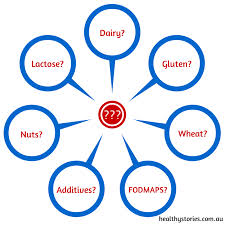Can Food Intolerance Cause Behavior Issues in Children?
 You may not believe it, but that seemingly innocent glass of organic milk in your refrigerator may have been part of the culprit leading to your child’s meltdown this morning before school. But how can a food like dairy cause this to happen? And are there other foods which can cause this?
You may not believe it, but that seemingly innocent glass of organic milk in your refrigerator may have been part of the culprit leading to your child’s meltdown this morning before school. But how can a food like dairy cause this to happen? And are there other foods which can cause this?
According to many researchers and nutrition experts the top common food intolerances include:
1- Dairy
2- Eggs
3- Gluten (protein in wheat, rye, oats and barley)
4- Sugar (particularly if your child has Candida, a yeast overgrowth which can effect behavior which is common in children with compromised digestion and/or disorders on the spectrum, like Autism and ADHD, etc.)
5- Shellfish
6- Soy
7- Foods high in Salicylates
8- Food Dyes, preservatives, pesticides, GMO’s (genetically modified foods)
The reason for the behavioral problem and its association with food is interesting. If you are intolerant to a particular food, what occurs is called an IgG reaction. This reaction stems from the immune system and causes the body to product an inflammatory chemical, called cytokines. These inflammatory chemicals can inflame the gut, brain or respiratory tract. Think about how that:
A: Effects how we feel physically and
B: How that effects us emotionally
Food intolerance differs from a food allergy, because it causes an immediate reaction which signals the body to produce histamine. A food allergy or an IgE reaction, requires prompt medical attention in some cases. While neither reaction is fun, the tricky thing with an IgG reaction or food intolerance is that, unlike a food allergy, in which symptoms occur rapidly, it can take 1-3 days for a reaction to a food to occur. Therefore, if you are not tracking your foods or working with a professional, you may not notice the reaction in which is occurring and/or which foods are potentially affecting behavior.
Behavior challenges come into play when a child consumes a food in which he/she is intolerant to. If your child has a glass of milk and the body begins to product cytokines, we can see inflammation in the brain which can cause meltdowns, irritability, anxiety, depression, brain fog and more. If your child already has compromised digestion, eating a food in which one is intolerant to can also cause further damage as it can cause leaky gut syndrome, a phenomenon which promotes malabosportion of nutrients.
My advice: If you suspect you or your child have food intolerance, you should seek out the advice of a professional or try to keep a food diary for at least 7 days and log all symptoms and behavior. Sometimes there is a clear pattern, but sometimes testing is required to ensure which foods are the true offenders. Remember, you are what you eat. Many people are shocked to learn how much a food was affecting them and how it made a huge difference to remove the food from the diet.


Leave a Reply
Want to join the discussion?Feel free to contribute!